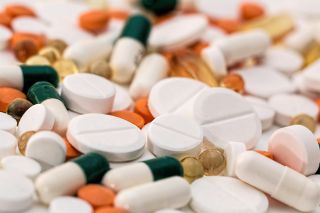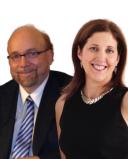Depression
Treating Depression: Why Are There So Many Drugs?
Exploring the landscape of mental health medications.
Updated January 31, 2024 Reviewed by Davia Sills
Key points
- A number of different classes of medication may be used for treating depression.
- Family, medical, and medication history will help determine which drug(s) a doctor will prescribe.
- Medications from different classes may be combined for optimal effect in treating specific symptoms.

When new patients come to see me, they typically complain about a wide range of symptoms—they’re not sleeping well, can’t concentrate, are irritable with their spouse, children, and/or colleagues, have problems making decisions, just to name a few of the problems they are facing. The importance of getting a thorough psychiatric consultation cannot be overestimated. There are biological, psychological, social, and spiritual components that generally play a role in mental health challenges, and we need to address all of them.
When my patient’s diagnosis is major depression or dysthymia (a milder form of depression), I generally recommend an integrative approach—a combination of psychotherapy, psychopharmacology, and mind and body healing techniques, like meditation, yoga, or Tai Chi. Medication, however, is often needed to jumpstart the process. While exercising, eating well, and practicing good sleep hygiene are important in regulating mood, the lethargy, hopelessness, and lack of focus that characterize depression often prevents a person from pursuing positive lifestyle habits. It’s only when medication begins to lift the dark cloud of depression that they have the desire, energy, and determination to incorporate wellness practices into their daily routine and begin to make the most of psychotherapy.
Clearing up the confusion about drugs for depression
Many new patients know little about psychiatric medications and are often resistant to taking them. Even if they’ve struggled with depression for a long time and their jobs, marriages, and friendships are at risk, they’re scared that antidepressants will turn them into “zombies,” fearful they will become dependent on them, or convinced they should have the will power to overcome their problems without the aid of a pharmacological substance.
We are fortunate today to have a large array of pharmacological options with which to target depression. There is no one prescription that is right for every individual who is suffering from depression. Nor is there a guarantee that the first drug you are prescribed will be the right medication for you. It can often take some trial and error before you land on the optimal formula.
I cannot tell you what is the best psychiatric medication for you. That is a decision that needs to be determined by you and your physician. Depression can manifest in a multitude of ways—somatically (affecting you physically by disrupting your sleep and eating habits), cognitively (causing difficulty with making decisions or being able to overcome negative loop thinking), and emotionally (leading to an angry or desultory mood). The best drug treatment for depression is symptom-specific. The good news about medication for depression is that the options can be targeted exactly to your symptoms.
The following is a general outline of seven classes of psychiatric (known as psychotropic) drugs, which frequently come to bear in the treatment of depression, anxiety, and ADD. It is not uncommon for drugs of different classes to be used together. Not every class of drugs may be drawn upon, but it’s helpful to know the categories, what they each do, and how and why they may need to be combined for maximum therapeutic effect.
1. Antidepressants — These are usually prescribed as the main drug, with drugs from other classes added as needed. Each type of antidepressant increases the level of a specific chemical in the brain:
Selective Serotonin Reuptake Inhibitors (SSRIs) increase serotonin levels in neuronal interspaces. These include Prozac (Fluoxetine), Celexa (Citalopram), (Lexapro (Escitalopram), Paxil (Paroxetine), Zoloft (Sertraline), and Luvox (Fluoxamine). They are indicated for major depression and also, depending on the agent, for premenstrual dysphoric disorder (PMDD), generalized anxiety disorder (GAD), panic disorder (PD), social anxiety disorder (SAD), obsessive-compulsive disorder (OCD), post-traumatic stress disorder (PTSD), and persistent depressive disorder (PDD).
Serotonin-Norepinephrine Reuptake Inhibitors (SNRIs) are indicated for the conditions listed for SSRIs but are a bit more activating, which is an advantage for the depressed patient who feels sluggish. The most popular SNRIs include Effexor (Velafaxine) and Pristiq (Desvenlafaxine).
Norepinephrine and Dopamine Reuptake Inhibitor — Wellbutrin (Bupropion), the only drug in this class, shares pharmacological aspects with psychostimulants so that, in addition to brightening mood, it increases concentration, focus, and energy. This antidepressant is often considered an option of choice for those who have attention deficit disorder (ADD). It generally does not interfere with one’s sex drive, especially in women, and it doesn’t cause weight gain or have a numbing impact on emotion.
Atypical Antidepressants, including Mirtazipene, have sedating and appetite-stimulating properties. This makes it particularly useful in palliative care and with patients who have cancer. Trazadone, another atypical antidepressant, is highly sedating and is sometimes used at low doses as a sleep aid supplement to another antidepressant.
Norepinephrine Reuptake Inhibitors (NRIs) are commonly used to treat major depression, anxiety, panic disorder, narcolepsy, and attention-deficit/hyperactivity disorder (ADHD). They include Maprotiline (Ludiomil) and Atomoxetine (Strattera).
2. Anti-Anxiety Medications — This class of drugs, introduced in the 1960s, was first predominantly represented by Valium. Nowadays, Klonopin (Clonazepan) is frequently prescribed. It has the advantage of having a longer “half-life,” meaning it takes longer for the body to metabolize and, therefore, it has a longer-lasting effect. It can be used to treat panic attacks and acute anxiety. The orally disintegrating tablets dissolve in your mouth and hit the bloodstream faster than Klonopin pills, taking near-immediate effect.
Since it takes a number of days or weeks for antidepressants to take full effect, an anti-anxiety medication, like Klonopin, Ativan (Lorazepam), or Xanax (Alprazolam), is sometimes prescribed as a temporary supplement to give people a better sense of control over their symptoms at a time when their affective states are feeling wildly out of control and before the antidepressant kicks in. BuSpar (Buspirone) is another commonly prescribed anti-anxiety medication, but it can take a month to become fully effective.
3. Anti-Psychotic Medications — The name of this category is unfortunate, as these drugs can play an important role for non-psychotics in targeting chronic negative thoughts that are a common component of depression. While an antidepressant may target the dark mood of depression, an anti-psychotic medication, such as Seroquel, Risperidone, Olanzapine, and Abilify (Aripiprazole), might be added to the formula to relieve negative thinking, guilty ruminations, and paranoid feelings. Higher doses of these drugs are used in seriously psychotic conditions, like schizophrenia or bipolar disorders, but the lower doses are frequently prescribed as an accouterment to the treatment of depression.
4. Mood Stabilizers — These medications “put a lid” on the hypomanic symptoms that people with bipolar (manic or depression) conditions experience. They may be prescribed at a low dose if a patient has a family history of bipolarity or if a patient begins to exhibit hypomanic symptoms while taking an antidepressant. (This is called “Bipolar Two.") Newer mood stabilizers include Carbamazepine, Dilantin, Lamictal, Lyrica, Neurontin (Gabapentin), and Topamax (Topiramate).
5. Psychostimulants — If a patient has attention deficit disorder (ADD), medications like Ritalin and Adderall might be added to the medication formula to increase focus. If a patient feels too sedated, either from other medications or because of an underlying condition, psychostimulants may add energy and also augment the effect of the antidepressants.
6. Sleep Medications — Sleep disturbance is a common symptom of depression. Each sleep medication lingers in your body for a different amount of time (called a half-life). Talk with your doctor about your sleeping patterns and your schedule. If you need to get up early and drive, you should not take a sleep medication with a long half-life that will leave you drowsy and unfocused in the morning.
Sleep medication options include Z-sedative hypnotics, like Ambien (Zolpidem), Sonata ( zaleplon), and Lunesta (eszopiclone); benzodiazepines like Lorazepam, Oxazepam, Temazepam, Halcion (Triazolam), and Dalmane (Flurazepam); and anti-anxiety medications, which include Ativan (Lorazepam), Xanax (Alprazolam), and Klonopin (Clorazepam). Sedating antidepressants, like Trazadone, Remeron (Mirtazapine), Amitrptiline, and Doxepin, are taken in the evening as sleeping aids but have a positive effect on mood in the waking hours. Sedating anti-psychotics, such as Seroquel and Quietipine, will help with sleep and calm daytime excitability and ruminative thoughts. Mood stabilizers, including Neurontin (Gabapentin), Pregabalin, and, to a lesser extent Lamictal (Lamotrigine); sedating tricyclics, like Doxepin (Silenor); dual orexin receptor antagonists, like Belsomra (Suvorexant) and Lemborexan; supplements, like Melatonin, and cold or allergy medications, like Benadryl (Diphenhydramine) or Chlorpheniramine, are other possible sleep aids that might be considered.
7. Tricyclics — This “first generation” of psychiatric medication includes Amitriptyline, Amoxapine, Desipramine (Norpramin), Doxepin, Imipramine (Tofranil), Nortriptyline (Pamelor), and Trimipramine. While these have mostly been replaced by newer medications, which generally have fewer side effects, tricyclics may be prescribed if other treatments fail.
Once again, you need to work with your physician to determine the optimal strategy for overcoming your depression. Be sure to be prepared for your psychiatric consultation so your physician can make the most accurate diagnosis and determine the most effective treatment. Your family, medical, and medication history and your specific symptoms will determine what is best for you. Given the vast range of approaches available to treat depression, there is every reason to believe that you will find relief.




